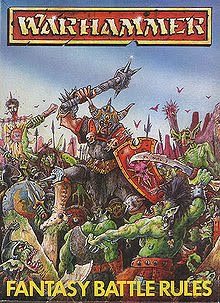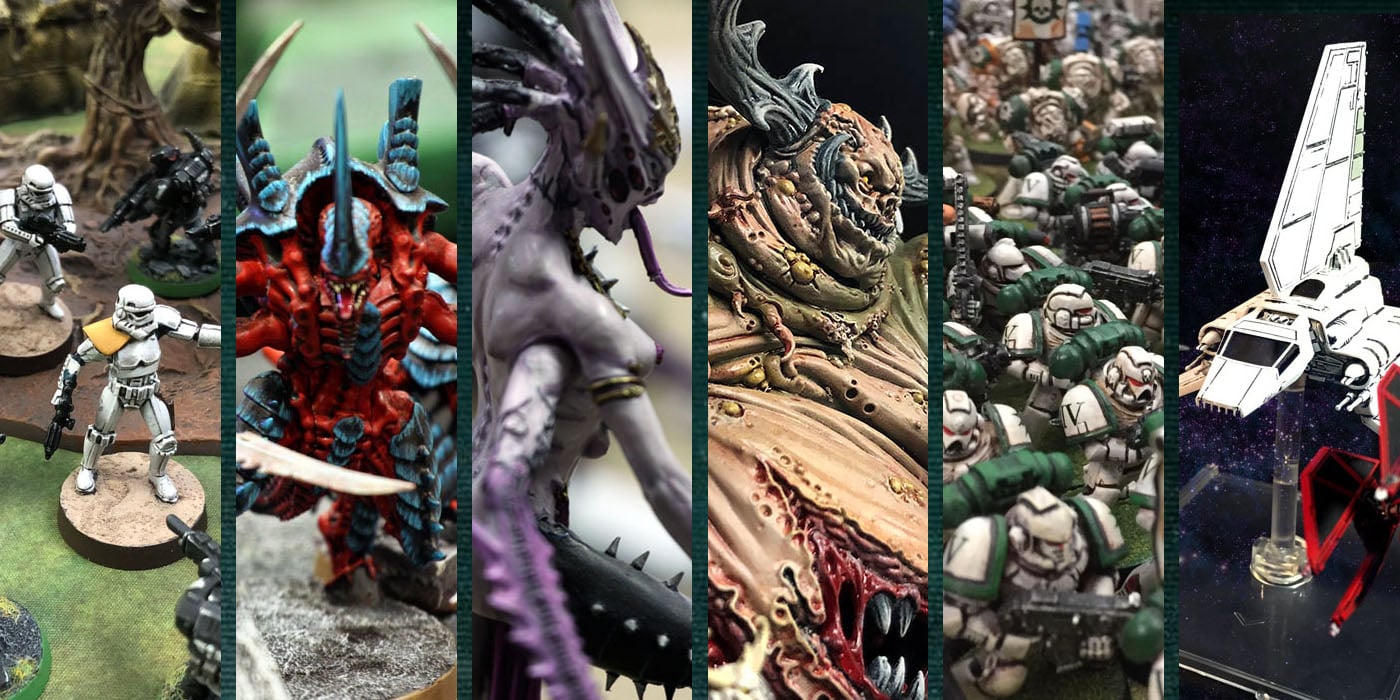EDITORIAL: Origins of the game

We often hear Jervis Johnson and the GW studio going on about the fun, make your own rules up, play unbalanced games, narrative side of the hobby but have you ever wondered why? ….
Hi folks, I’m Col. Corbane from Corbania Prime and I’m a new regular contributor to Bols. I’m quite different from the majority of Bols writers in that I’m not really a competitive player, I’m more into the narrative side of the game, writing my own rules and scenarios, running campaigns and generally having a laugh as I watch my men die.
I’ll be covering all sorts of non-competitive stuff in my column but for my first post, I thought it’d be good to actually have a look at where this ‘do what you want’ studio ethos comes from. Now, I’m not trying to say that everyone should play the game this way, I’m not saying that GW are right in taking this approach, I just want to have a chat about where it’s come from.
We often see Jervis Johnson going on about ‘basement gamers’, homebrew rules and the golden rule, but why? Way way back in the mists of time, long before the world had heard of Warhammer, Games Workshop was a different beast. They specialised in selling other peoples board and roleplay games, with roleplay games being the big thing at the time. Dungeons & Dragons was in it’s heyday and the stores were full of other roleplay games. Tabletop battles were the realm of the historical wargamers, played by serious ‘grown ups’ in brown jumpers, packing a pipe and sporting a beard that’d make a dwarf proud.
At the time, roleplayers were starting to collect goblins and space soldiers from all the new miniature companies so that they could use them in the combat sequences of their games because it was a lot easier to look at a couple of models on a map, hastily drawn on a piece of paper than to try and figure out where all the players were in their heads. Over time, the miniature collections grew and so did the desire to fight larger combat sequences. Fights became skirmishes, rules were drawn up, skirmishes became battles and fantasy wargaming was born and the worlds of Warhammer along with it.
It’s important to realise that these founding rule writers were roleplayers and roleplay isn’t a competitive game. In fact, it’s a co-operative for fun game, where all the players agree to get along and make the game work for the benefit of everyone. It’s full of narrative or story telling gameplay, led by a games master who was often required to make up rules or tests of the fly and these principles found themselves instilled into the first Warhammer games.
Looking back at the first rulesets, you can see lots of similarities between the first few Warhammer games and roleplaying. The rules were overly complicated with masses crossovers between the two gaming systems, even requiring a games master to oversee the game. Warhammer Fantasy was geared for battle games whereas Rogue Trader was geared for skirmish games since fantasy roleplay was more common than futuristic and so players tended to have more fantasy models than futuristic ones.
As time has pasted, the games have slowly moved from the narrative play of it’s origins to a more competitive style of play and will continue to do so as younger non-roleplaying games designers join the studio but the narrative co-operative for fun ethos still exists in the studio old timers.
Is this a good thing, well, that’s a whole other post for another time, but for now, that’s where it’s come from and over the course of my column, we’ll be looking at all the different aspects of non-competitive play. Keep your eyes peeled for my next post where we’ll be looking at the main ways to break the game.
I want to hear your thoughts on narrative play folks, whether it’s story driven gameplay or homebrew rules, have you ever tried it? do you love it? hate it? lets hear it in the comments and if you want to know more about how I play, come on over and visit me at Corbania Prime.








